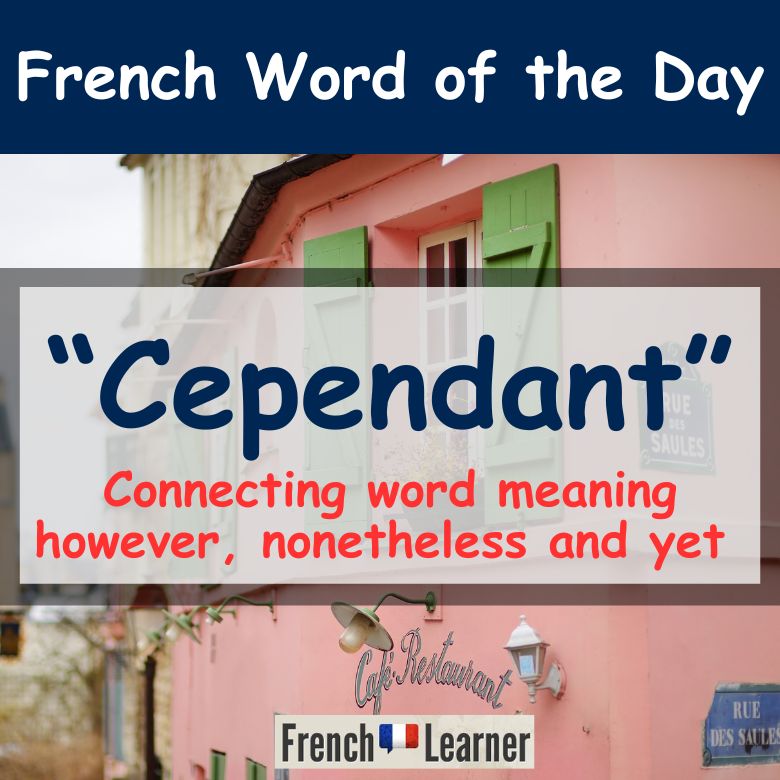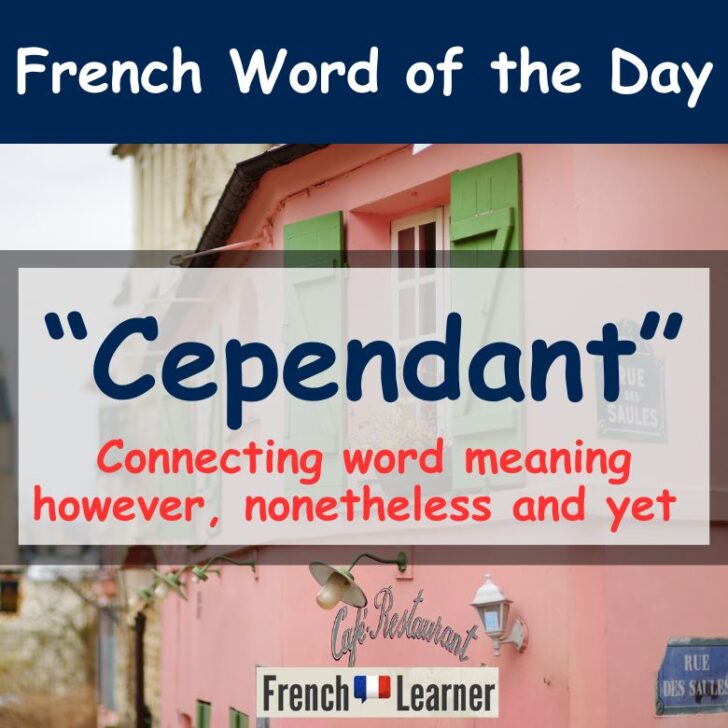Today we’ll have a look a more advanced connecting word which is very useful in conversation: Cependant. Meanings include “however”, “yet”, “nevertheless” and “nonetheless”. J’aime préparer les leçons ; cependant le travail est très exigeant (I like preparing the lessons, yet the work is very demanding).
cependant
however, yet, nevertheless

Word origin
The word cependant dates back to the 18th century and is comprised of two words: ce (this) and pendant (during). Ce comes from eccĕ (behold, here) in Latin. Pendant is the present participle of the verb pendre (to dangle, to hang). Pendre comes form the Latin pendere (to hang, be suspended).
Example sentences
For the following example sentences, the translations of cependant can include everything we listed in our introductory paragraph: yet, however, nonetheless, etc. The main theme for all the sentences is that the two clauses contain an element of contradiction.
For this first example, gagner means “to win” or “to earn (money)”. The reflexive verb s’inquiéter means “to worry”.
Il gagne bien sa vie et cependant il s’inquiète pour l’argent.
He makes a good living and yet he is worried about money.
The adverb beaucoup means “a lot” or “a lot of”. Dernier means “last” but in the sentence below we translated it loosely to “recent”. The ses is a possessive adjective and could mean both “his” or “her”, depending on the context of the sentence.
J’aime beaucoup cet auteur ; cependant ses derniers romans ont baissés en qualité.
I like this author a lot. However, the quality of his latest novels has fallen.
For this next example, we took the liberty to translate cependant to “but nevertheless”.
Il n’a pas de temps libre, cependant il va au café pour voir ses amis.
He doesn’t have any freetime but nevertheless goes to café to see his friends.
For this final sentence, il fait mauvais means “the weather is bad”.
Il fait mauvais, cependant je sors me promener.
The weather is bad yet I’m going out for a walk.

Related lessons
- Bien que – Even though, although
- Quoique – Even though, although
- Lors de – At the time of
- Puisque – Since
- Bien que – Even though, although
- Quoique – Even though, although
- Ainsi – Like this, in this way
- Pendant – during

